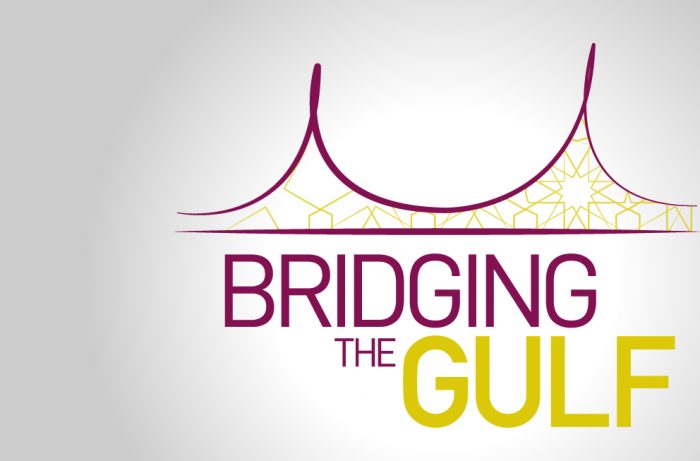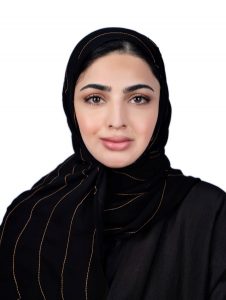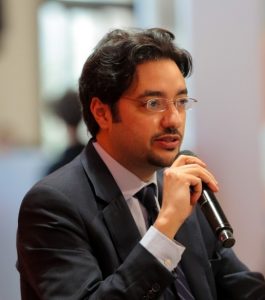
- 11 Jun 2021
Session 7: Qatar: Small State, Big Politics, and the Road to Diversification
Qatar, a young state with a commensurately small population has emerged as an influential powerbroker in the Middle East. What are the tools that have enabled it to project power, soft or otherwise, on the international stage? How can we better understand Qatar’s “maverick” diplomacy that has enhanced its branding? Since its independence in 1971 and following a period of “high modernism,” the Qatari state has also deepened domestic ties with important social actors, bringing them into its orbit by forging lucrative financial ties. How did the acumen of Sheikh Hamad bin Khalifa Al-Thani, who became Emir in the mid-90s, take the country further forward and what was the rationale behind transferring power to his young son, Tamim bin Hamad Al-Thani (then 33 years old), in 2013?
Despite the challenge arising from the Gulf crisis from 2017 to 2021, Qatar has proven resilient and hastened processes of economic diversification. Besides liquefied natural gas, how has the state addressed the questions of energy transition and sustainable development? More importantly, self-sufficiency is key to Qatar’s resilience. These are the questions that our guest speakers will tackle in this webinar.
Speakers: Ms Zarqa Parvez, Durham University and Mr Omran Hamad Al-Kuwari, Qatar Foundation International (QFI)
 Ms Zarqa Parvez is a PhD candidate at Durham University whose research delves into nationalism, women and state-society relations in the Gulf region. Until December 2020, she was also a lecturer at the Middle Eastern Studies department at Hamad Bin Khalifa University, juggling teaching commitments with doctoral research. She completed her degree at Georgetown University before obtaining a MSc State, Society and Development from SOAS University of London. Some of her past research initiatives encompass an examination of women and status quo in Saudi Arabia as well as others on public policy and identity. She has also led independent research projects related to the development of education and youth in Qatar.
Ms Zarqa Parvez is a PhD candidate at Durham University whose research delves into nationalism, women and state-society relations in the Gulf region. Until December 2020, she was also a lecturer at the Middle Eastern Studies department at Hamad Bin Khalifa University, juggling teaching commitments with doctoral research. She completed her degree at Georgetown University before obtaining a MSc State, Society and Development from SOAS University of London. Some of her past research initiatives encompass an examination of women and status quo in Saudi Arabia as well as others on public policy and identity. She has also led independent research projects related to the development of education and youth in Qatar.
 Mr Omran Hamad Al-Kuwari, CEO of Qatar Foundation International (QFI) and a doctoral researcher at University College London’s Institute for Sustainable Resources. Prior to joining QFI, Omran held several key leadership positions in the energy industry between 1999 and 2015 with Qatar Petroleum, ExxonMobil, GreenGulf and South Hook Gas in the UK, Japan and the Middle East. He joined Qatar Foundation’s executive management team, as the Executive Director of the CEO’s office and is now the CEO of QFI. Omran holds a bachelor’s degree in Business Administration from George Washington University and a Master’s degree in Business Administration from City University London, Cass Business School. Omran’s current research is centred around the impact of climate change and decarbonisation on the energy industry, with a particular focus on liquefied natural gas and hydrogen.
Mr Omran Hamad Al-Kuwari, CEO of Qatar Foundation International (QFI) and a doctoral researcher at University College London’s Institute for Sustainable Resources. Prior to joining QFI, Omran held several key leadership positions in the energy industry between 1999 and 2015 with Qatar Petroleum, ExxonMobil, GreenGulf and South Hook Gas in the UK, Japan and the Middle East. He joined Qatar Foundation’s executive management team, as the Executive Director of the CEO’s office and is now the CEO of QFI. Omran holds a bachelor’s degree in Business Administration from George Washington University and a Master’s degree in Business Administration from City University London, Cass Business School. Omran’s current research is centred around the impact of climate change and decarbonisation on the energy industry, with a particular focus on liquefied natural gas and hydrogen.
For the reading materials for this session, please click here.
Listen to the full event here:
Watch the full event here:
A summary of Session 7’s proceedings can be found below.
Bridging the Gulf Episode 7: Qatar: Small State, Big Politics, and the Road to Diversification
By Ilyas Salim, Research Assistant, Middle East Institute, National University of Singapore
Ms Zarqa Parvez – PhD candidate at Durham University
Qatar’s foreign policy has undergone different transformations since its independence in 1971, although any major underlying principles continue to remain the same today. A primary consideration of Qatari foreign policy is its geopolitical location, as it shares a border with Saudi Arabia, the traditional hegemon in the region.
Many underlying principles of Qatar’s foreign policy were laid down by Dubai’s 3rd ruler Sheikh Hamad bin Khalifa who came to power in 1995. During his time, the foreign policy of the Gulf states generally followed the lead of the Saudis. The establishment of US bases in Qatar, however, endowed it with a strong military footing and allowed it to independently undertake bold regional policies. While Qatar’s foreign policy had generally been one of pragmatism, Sheikh Hamad broke with this tradition and envisioned a more globally prominent role for Qatar. He introduced many fixed principles within Qatar’s foreign policy, including the promotion of peace and stability and encouraged the settling of international disputes. Under his leadership, Qatar became increasingly involved in the rule of international law, as seen when its territorial dispute with Bahrain over the Hawar islands was presided by the International Court of Justice, rather than brought to Saudi Arabia.
To date, Qatar’s political and diplomatic ambitions focus on building influence using two major tools. The first is its financial leverage in the form of its sovereign wealth fund, which was used to build the Qatar Investment Authority and develop spheres of influence through global financial engagements. This was bolstered by Qatar’s increasing reputation as a regional peacemaker, having acted as a mediator in various areas including those of Palestine and Somalia. The second tool is soft power – an area in which Qatar has spent significantly on in an attempt to cultivate an image as a neutral, peace-promoting and progressive state. To this end, it has invested in various efforts including the building of museums and international universities and a high-profile involvement in the sports industry. A crucial aspect of Qatar’s soft power lies in the media channel Al Jazeera. Launched in 1996 and often called the ‘voice of the Arab world’, it represents a sharp break from the traditional media in the region and became known for its investigative journalism. Al Jazeera quickly became a regional media in hegemon and a powerful diplomacy tool for Qatar.
The Arab Spring revolts were a key turning point for Qatari foreign policy. The protests were seen with trepidation by governments across the Middle East, which tried to further suppress them by resorting to authoritarian censorship measures. Qatar, however, supported the revolts and Al Jazeera provided extensive media coverage of the unfolding revolutions. While this underscored the independence of Qatar as a regional actor, it also created tensions with the other Gulf states. During the reign of Sheikh Tamim bin Hamad who ascended to the throne in 2013,
Al Jazeera toned down its criticism of regional governments in a bid to improve Qatari-Gulf relations. However, tensions continued to simmer behind the scenes over Qatar’s foreign ambitions, including its warming ties with Iran.
These tensions culminated in the 2017 blockade imposed over Qatar by the Gulf states — mainly Saudi Arabia, Bahrain and the UAE — who issued a list of demands including the closure of Al Jazeera and reducing ties with Iran. The blockade marked another drastic change in Qatar’s economic, social and political outlook, forcing it to seek self-sufficiency by finding new allies and trade routes. Qatar’s refusal to make any serious concessions regarding the Gulf states’ demands also highlighted the importance it placed in its foreign policy principles. Importantly, the blockade was also vital to the development of a new Qatari nationalism, as identification with the national experience began to be perceived as overriding traditional regional and tribal identities.
Mr Omran Hamad Al-Kuwari – CEO of Qatar Foundation International (QFI) and doctoral researcher at University College London’s Institute for Sustainable Resources
Its small size notwithstanding, Qatar has been quick to recognise its considerable advantages and envision a global role for itself. Liquefied natural gas (LNG) is a key element of Qatar’s natural resources, opening up certain options not available to other countries in the region. LNG, being cleaner than coal and more flexible than oil, holds much appeal for countries interested in diversifying their energy imports. While demand for all fossil fuels took a major hit due to the Covid-19 pandemic, LNG was the least affected and the quickest to recover.
Apart from simply possessing significant LNG resources, Qatar has adopted a forward-thinking approach in managing the energy industry. Qatar’s critical geographical location between Europe and Asia allows it to divert to or take advantage of markets in both continents. Its global significance aside, LNG also has a key role to play in the region. With oil-rich Gulf countries attempting to diversify away from crude, natural gas provides an alternative way to cheaply and quickly produce large amounts of energy to meet demands whilst staying on course to transition to greener economies. Qatar is already a major exporter of natural gas to Kuwait and the UAE and is currently in discussions with Saudi Arabia over LNG exports.
The LNG industry has also attracted several international energy firms including TotalEnergies, Exxon Mobil and Marubeni and their relationship with Qatar has evolved beyond a technical partnership; these firms have since developed a vested interest in the smooth flow of operations. Valuing its erstwhile industry reputation as a reliable energy supplier, Qatar took pains to ensure the lack of any disruptions or delays in energy shipments to its partners throughout the 2017 blockade.
While LNG is generally more resistant than crude to recent energy fluctuations in a world striving towards net zero emissions, it cannot hold out forever. Anticipating this, Qatar has positioned itself as a leader in sustainability, which has actually been part of the nation’s agenda for over 15 years. Understanding that sustainability is important not only from an environmental perspective but also an economic one, it was the first Gulf country to host the UN Conference of the Parties (COP) Climate Change Conference, risking its relations with other Gulf states in doing so.
The concept of sustainability has accordingly been threaded into many of the nation’s key projects even before the catalysing impact of the Covid-19 pandemic. Its 2011 bid to host the World Cup in a compact city touted reduced travel emissions and showcased new renewable stadiums that could be dismantled and rebuilt in different locations by reusing materials. Qatar has also explored other novel approaches to sustainability, with its Msheireb project focusing on using modern techniques and technologies to regenerate the historical downtown area of Doha.
Economic diversification represents another vital objective for Qatar and is a significant aspect of its National Vision 2030. In this area, Qatar has aimed to reduce its heavy economic reliance on the public sector industry and channel resources towards private entrepreneurship. It has also aggressively sought to create a conducive environment for research and development initiatives and has invested much in the education industry to develop its human capital. The necessity of economic diversification was further underscored during the Gulf blockade, which forced Qatar to navigate new opportunities leading to for instance, innovations in food sourcing and production.




